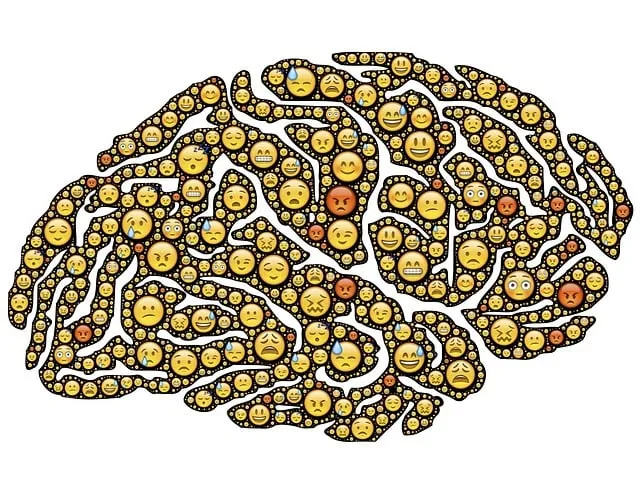The media significantly influences societal perceptions of mental health, with accurate and compassionate portrayals encouraging help-seeking behaviors. However, stereotypes and misinformation contribute to stigma, as seen in Westminster Kaiser Permanente behavioral health number statistics. To challenge these narratives, media should feature authentic characters overcoming challenges through self-esteem improvement and healthcare provider burnout prevention stories. Collaborating with institutions like Westminster Kaiser Permanente ensures respectful portrayals, educates audiences, and encourages help-seeking behaviors, ultimately normalizing conversations around mental health.
In today’s media landscape, the representation of mental illness plays a pivotal role in shaping public perception and understanding. This article explores the significant impact of media portrayals on mental health awareness, using insights from Westminster Kaiser Permanente’s behavioral health numbers. We delve into the current state of mental illness media depictions, highlighting challenges and misconceptions. Additionally, we present strategies for more accurate and empathetic representations, emphasizing the importance of collaboration between media and mental health advocates to foster positive change and enhance mental health awareness.
- Understanding the Impact of Media Representation on Mental Health Perception
- The Current State: How Media Portrays Mental Illness (Westminster Kaiser Permanente behavioral health number insights)
- Strategies for Accurate and Empathetic Mental Illness Media Depictions
- Fostering Positive Change: Collaborating with Media to Improve Mental Health Awareness
Understanding the Impact of Media Representation on Mental Health Perception

The media plays a pivotal role in shaping societal perceptions about mental health. Accurate and compassionate representation can significantly impact how individuals understand and approach behavioral health issues, potentially encouraging help-seeking behaviors. Unfortunately, stereotypes and misinformation have long plagued media portrayals of mental illness, leading to stigma and misinformed judgments. This is particularly concerning given the high prevalence of mental health disorders in society, as seen in the Westminster Kaiser Permanente behavioral health number statistics.
Media has the power to either perpetuate or challenge these negative narratives, influencing public opinion and shaping attitudes towards those living with mental illness. Depicting characters with authentic experiences who overcome challenges through self-esteem improvement and confidence boosting strategies can offer hope and inspire positive change. Moreover, incorporating stories that highlight burnout prevention strategies for healthcare providers can shed light on the importance of support systems and coping mechanisms within the medical field, ultimately fostering a more understanding and empathetic society.
The Current State: How Media Portrays Mental Illness (Westminster Kaiser Permanente behavioral health number insights)

The current state of mental illness representation in media is a complex issue with significant implications for public understanding and support. Often, media portrayals fall into simplistic or sensationalized narratives, perpetuating harmful stereotypes and misunderstandings about various mental health conditions. This can lead to stigma, fear, and misconceptions among audiences, hindering those who might be struggling from seeking help. Studies, such as those conducted by Westminster Kaiser Permanente, have revealed concerning trends in media’s approach to this topic. The behavioral health number insights highlight the need for more nuanced and accurate depictions that reflect the diversity of experiences within the mental health spectrum.
Emotional regulation and emotional well-being promotion techniques are crucial elements often missing from media representations. Portraying individuals effectively managing their symptoms, seeking support, and demonstrating resilience can help normalize these experiences. Additionally, training healthcare provider cultural competency is essential to ensure accurate and sensitive portrayals of mental illness, especially considering the impact on diverse communities. By challenging stereotypes and providing more realistic and empathetic narratives, media has the potential to foster a culture of understanding and reduce barriers to accessing behavioral health services.
Strategies for Accurate and Empathetic Mental Illness Media Depictions

Media has a powerful influence over public perception, and accurate representation of mental illness can significantly impact societal attitudes and behaviors. To challenge stereotypes, media creators should adopt strategies that prioritize authenticity and empathy. This includes consulting with experts in behavioral health, such as those available at Westminster Kaiser Permanente, to ensure the portrayal is respectful and realistic. Portraying characters with nuanced emotional experiences, rather than solely focusing on illness, fosters understanding and emotional intelligence.
Self-esteem improvement can be subtly incorporated into storylines by showcasing recovery journeys and highlighting the strength of individuals facing mental health challenges. Additionally, integrating mental wellness themes into Mental Wellness Podcast Series Production allows for open discussions, educates audiences, and encourages help-seeking behaviors. These approaches contribute to a more empathetic media landscape, fostering positive changes in how mental illness is perceived and understood.
Fostering Positive Change: Collaborating with Media to Improve Mental Health Awareness

In today’s digital age, media plays a significant role in shaping public perception about mental health. Therefore, fostering positive change requires a collaborative effort between healthcare providers and the media industry. By partnering with organizations like Westminster Kaiser Permanente, behavioral health experts can guide media narratives to improve mental health awareness. This collaboration ensures that stories depicting individuals with mental illness are portrayed accurately and sympathetically, dispelling stereotypes and stigma.
Through these partnerships, self-awareness exercises and confidence-boosting initiatives can be integrated into media content, promoting better understanding and empathy among the audience. Additionally, discussing effective mood management strategies in a responsible manner can help normalize conversations around mental health, encouraging those struggling to seek appropriate support. Such collaborative efforts have the potential to revolutionize how society addresses and supports individuals with behavioral health challenges.
Media representation plays a pivotal role in shaping societal perceptions of mental illness. By implementing strategies for accurate and empathetic depictions, we can foster positive change and improve mental health awareness. Collaboration between media outlets and healthcare professionals, such as those at Westminster Kaiser Permanente, is essential to ensure that stories reflect the reality of living with mental illness while promoting understanding and compassion. This collective effort has the potential to revolutionize how society views and supports individuals grappling with these challenges.






